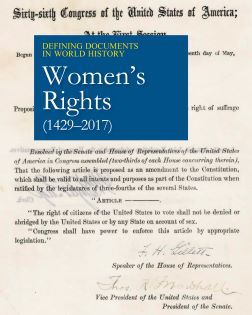Choosing a topic
Picking a topic is research! Topics start very broad and then need to be narrowed down to a manageable size. For example, the broad topic for this assignment is a career; however, there are thousands of books, articles, and films about all types of careers. You will need to choose a recognized career that has background information as well as current information on what a person can do within that field of work. Think big, then narrow your focus. You can also choose to focus on gender or race, person or place, activity or movement. Try a variety of topics and see what kind of results you get. If you get very few results, change the topic and try again.
Check out this brief tutorial from North Carolina State University
Research Topics
Developing a research question is a process. To help with the process, look through the table of contents of your textbook for ideas. Find a topic that you are interested in learning more about. After you choose a broad topic, narrow it down to a specific group of people, event, or concept. Below are some suggestions:
People
- Women
- African Americans
- Native Americans
- Mexican/Hispanic citizens
- Chinese Immigrants
- Farmers, miners, soldiers
Economics, Politics, Culture
- The underground railroad
- The California Gold Rush
- Urbanization
- Great Depression
- The American Dream
- Civil Rights
Use the 5 Ws to narrow your topic:
- Who
- What
- When
- Where
- Why
The Five W criteria can add context to your investigation and turn a topic into a research question.
- The WHO describes an individual or select population you are investigating.
- The WHAT describes a specific aspect or element that directly impacts the WHO.
- WHEN is a time frame in which you might limit your investigation
- WHERE is a geographical location where you might focus.
- The WHY is the reason why this investigation is important or meaningful. The WHY is not necessarily a part of the final research question but more informative of the scope of the project in general.
Primary Sources
Primary sources provide first person experiences on your topic. Primary sources include letters, legal documents, interviews, live performances, images, and artifacts. Primary sources can be found in books, newspapers, and journals. They can also help you narrow your topic and discover keywords for further searching. Below are primary sources related to suggested topics:
-
 Milestone Documents in American History : Exploring the Primary Sources That Shaped America
by
Primary Sources in Full Text with Overviews, Context, Explanation and Analysis. See vol. 3 & vol. 4 for Plessy v. Ferguson; Brown v. Board of Education; Southern Manifesto; Letter from Birmingham Jail; Civil Rights Act of 1964; Voting Rights of 1965; Equal Rights Amendment; Cesar Chavez's Commonwealth Address
Milestone Documents in American History : Exploring the Primary Sources That Shaped America
by
Primary Sources in Full Text with Overviews, Context, Explanation and Analysis. See vol. 3 & vol. 4 for Plessy v. Ferguson; Brown v. Board of Education; Southern Manifesto; Letter from Birmingham Jail; Civil Rights Act of 1964; Voting Rights of 1965; Equal Rights Amendment; Cesar Chavez's Commonwealth Address -
Rockin' the Free World! by
Call Number: ML 3918 .R63 K39 2018Rockin' the Free World then shows how artists have engaged in advancing change via opportunity and education; domestic and international issue advocacy; and within the recording and broader communications industry. The book is built around primary interviews with prominent American and international performing artists ranging from Rock and Roll Hall of Fame inductees and Grammy winners to regional and local musicians. -
Thurgood Marshall: His Speeches, Writings, Arguments, Opinions, and Reminiscences by
Here are briefs he filed as a lawyer, oral arguments for the landmark school desegregation cases, investigative reports on race riots and racism in the Army, speeches and articles outlining the history of civil rights and criticizing the actions of more conservative jurists, Supreme Court opinions now widely cited in Constitutional law, a long and complete oral autobiography, and much more. -
The Words of César Chávez by
A collection of speeches and writings by the Mexican American labor activist and head of the United Farm Workers.Cesar Chavez's relentless campaign for social justice for farm workers and laborers in the United States marked a milestone in U.S. history. Through his powerful rhetoric and impassioned calls to action, Chavez transformed as well as persuaded and inspired his audiences. -
 Defining Documents in World History
Call Number: REF HQ 1236. W664 2018 vol. 1 & vol. 2This source is available online and in print formats.
Defining Documents in World History
Call Number: REF HQ 1236. W664 2018 vol. 1 & vol. 2This source is available online and in print formats.
Provide in-depth analysis of a broad range of historical documents from influential figures in women's history from the United States and around the world. See chapters about: Gloria Steinem, Shirely Chisholm, Ella Baker, Betty Friedan, and many more. -
 I have spoken: American history through the voices of the Indians
by
Call Number: E 98 .O7 A7 1971A chronological compilation of both famous and unfamiliar Indian speeches from the seventeenth to the twentieth centuries.
I have spoken: American history through the voices of the Indians
by
Call Number: E 98 .O7 A7 1971A chronological compilation of both famous and unfamiliar Indian speeches from the seventeenth to the twentieth centuries. -
 Defining Doucments of American History: LGBTQ+ (1923-2017)
by
Call Number: REF KF 4754.5 .L495 2018 v.1As gay, lesbian, and transgender individuals have continued their fight for basic rights and equal treatment under the law, various court cases and challenges to those cases have continued to refine the debate. This new resource provides important analyses of over 80 documents significant to LGBTQ rights
Defining Doucments of American History: LGBTQ+ (1923-2017)
by
Call Number: REF KF 4754.5 .L495 2018 v.1As gay, lesbian, and transgender individuals have continued their fight for basic rights and equal treatment under the law, various court cases and challenges to those cases have continued to refine the debate. This new resource provides important analyses of over 80 documents significant to LGBTQ rights -
The Road South by
Revisits the inspiring and heroic stories of the Freedom Riders, through their own words.